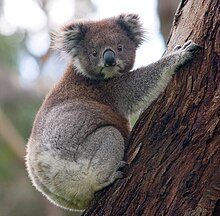guda
Acehnese
Etymology
Noun
guda
Basque
Etymology
Coined by Sabino Arana in the 19th century, who extracted it from Old Biscayne guda- (“compound form of gudu (“combat”)”) to replace gerra, a borrowing from Lua error in Module:parameters at line 360: Parameter 2 should be a valid language, etymology language or family code; the value "LL" is not valid. See WT:LOL, WT:LOL/E and WT:LOF.
Pronunciation
Noun
guda
Declension
Declension of guda (inanimate, ending in -a)
| indefinite | singular | plural | |
|---|---|---|---|
| absolutive | guda | guda | gudak |
| ergative | gudak | gudak | gudek |
| dative | gudari | gudari | gudei |
| genitive | gudaren | gudaren | guden |
| comitative | gudarekin | gudarekin | gudekin |
| causative | gudarengatik | gudarengatik | gudengatik |
| benefactive | gudarentzat | gudarentzat | gudentzat |
| instrumental | gudaz | gudaz | gudez |
| inessive | gudatan | gudan | gudetan |
| locative | gudatako | gudako | gudetako |
| allative | gudatara | gudara | gudetara |
| terminative | gudataraino | gudaraino | gudetaraino |
| directive | gudatarantz | gudarantz | gudetarantz |
| destinative | gudatarako | gudarako | gudetarako |
| ablative | gudatatik | gudatik | gudetatik |
| partitive | gudarik | — | — |
| prolative | gudatzat | — | — |
Further reading
- “guda”, in Euskaltzaindiaren Hiztegia [Dictionary of the Basque Academy], Euskaltzaindia
- “guda”, in Orotariko Euskal Hiztegia [General Basque Dictionary], Euskaltzaindia, 1987–2005
Dyirbal
Etymology
From Proto-Pama-Nyungan *gudaga. Related to Mbabaram dog, Yidiny gudaga.
Noun
guda (dual gudaɖaran, plural gudaguda) (class II noun)
Gamilaraay

Pronunciation
Noun
guda
- koala, Phascolarctos cinereus
- 1903, R. H. Mathews, Languages of the Kamilaroi and Other Aboriginal Tribes of New South Wales, in The Journal of the Anthropological Institute of Great Britain and Ireland, volume 33:
- Native bear .... .... guda
- 1903, R. H. Mathews, Languages of the Kamilaroi and Other Aboriginal Tribes of New South Wales, in The Journal of the Anthropological Institute of Great Britain and Ireland, volume 33:
References
- Peter Austin, A Reference Dictionary of Gamilaraay, northern New South Wales (1993)
Gothic
Romanization
guda
- Romanization of 𐌲𐌿𐌳𐌰
Venda
Verb
guda
- to learn
Wageman
Noun
guda
Categories:
- Acehnese terms borrowed from Tamil
- Acehnese terms derived from Tamil
- Acehnese lemmas
- Acehnese nouns
- Basque terms coined by Sabino Arana
- Basque coinages
- Basque terms with IPA pronunciation
- Basque lemmas
- Basque nouns
- Dyirbal terms inherited from Proto-Pama-Nyungan
- Dyirbal terms derived from Proto-Pama-Nyungan
- Dyirbal lemmas
- Dyirbal nouns
- Gamilaraay terms with IPA pronunciation
- Gamilaraay lemmas
- Gamilaraay nouns
- Gamilaraay entries with topic categories using raw markup
- kld:Mammals
- Gothic non-lemma forms
- Gothic romanizations
- Venda lemmas
- Venda verbs
- Wageman lemmas
- Wageman nouns
